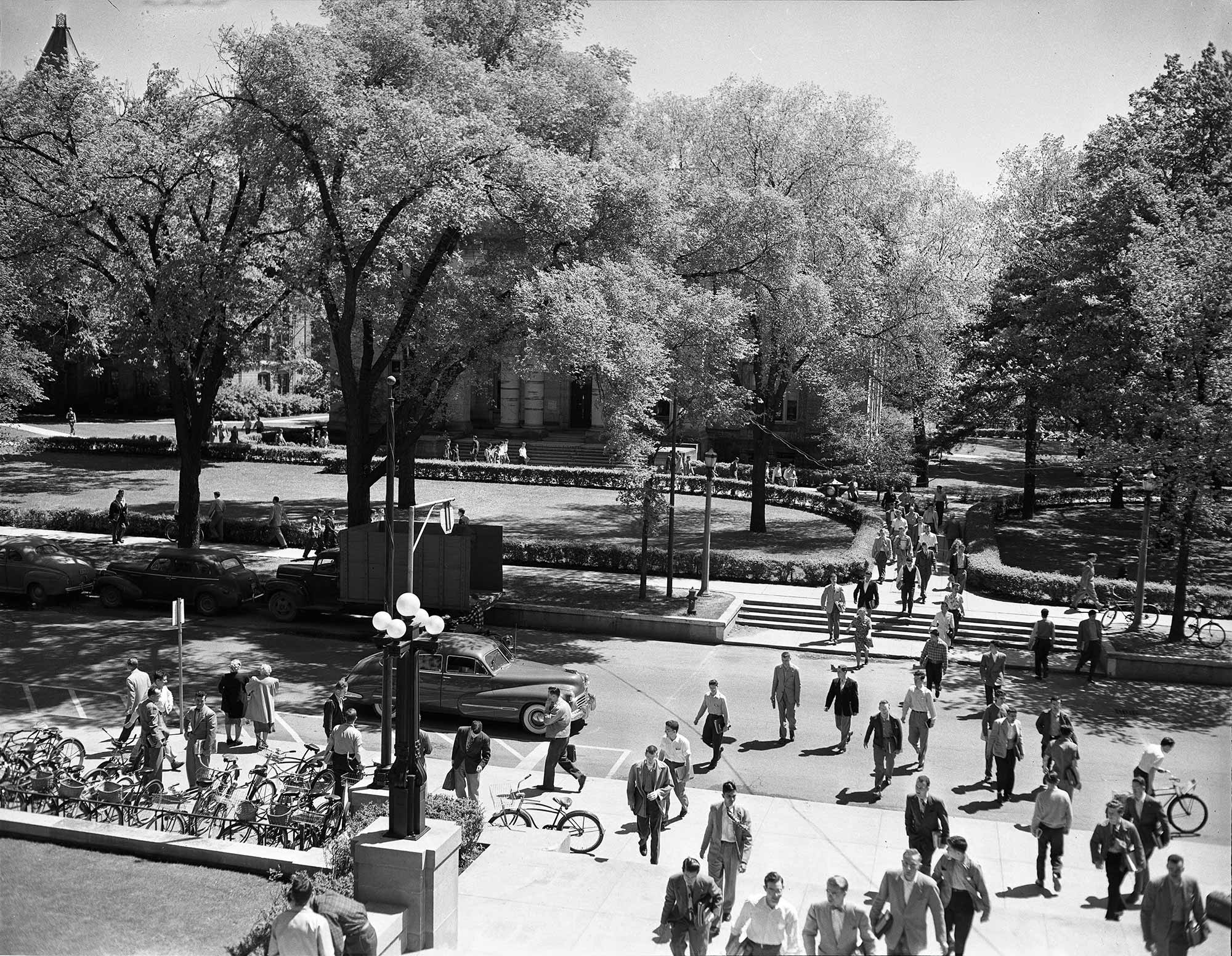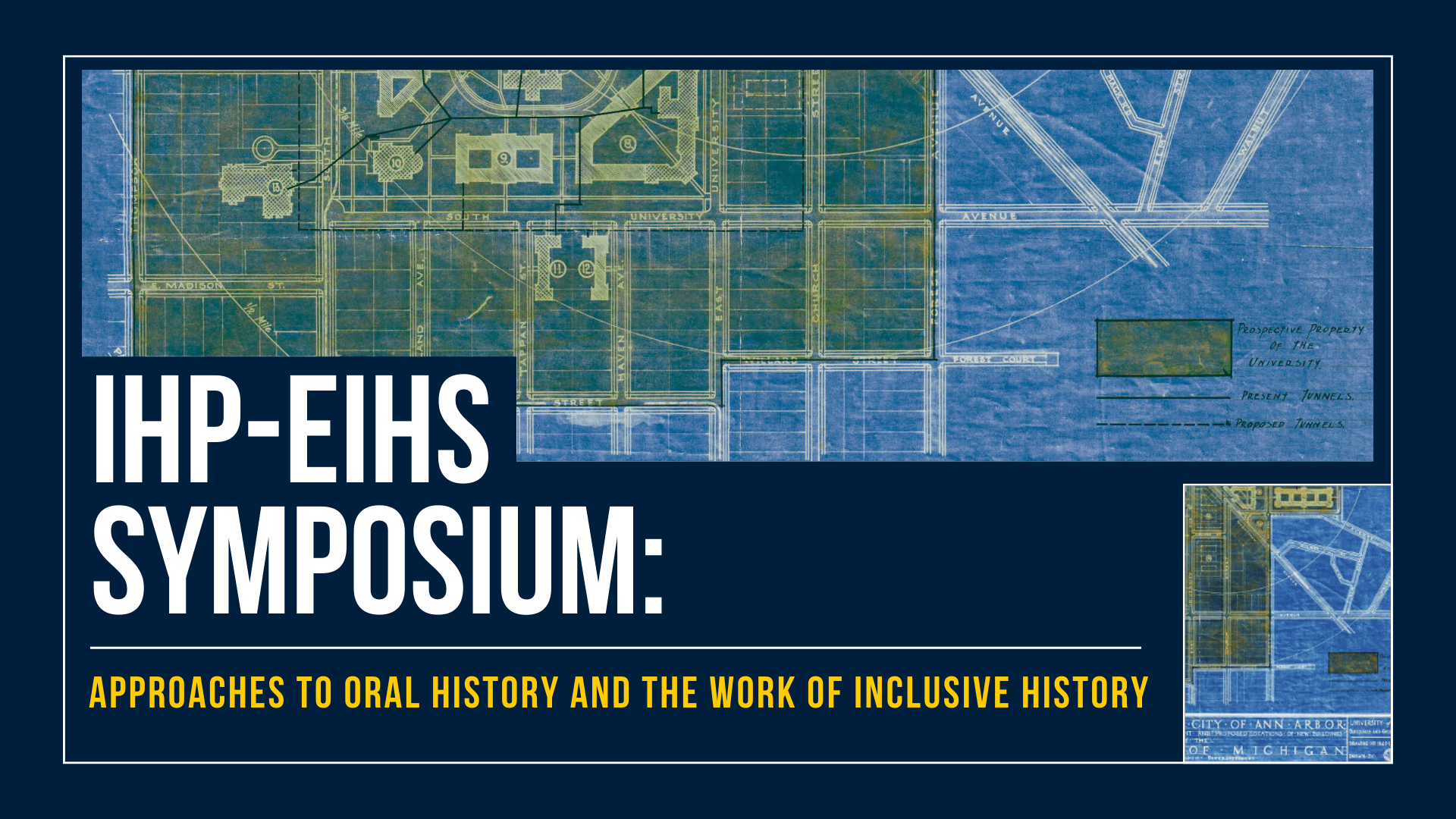The rubric of “inclusive history” has achieved a common currency. Today, you can find books, articles, websites, and university policies dedicated to its practice, including a large and ambitious Inclusive History Project (IHP) right here at U-M. Less clear is what this rubric has come to signify and enable over time. What values, methods, and practices bind the groundswell together?
This symposium explored such questions through the lens of oral history. Three scholars in different fields discussed the potential uses of oral history work for projects that are public facing, centered on inclusivity, and explicitly reparative. How does the practice of oral history change the ways we think about our audiences, our work with community partners, our research, and the potential impacts of our scholarship?
Speakers
- Camron Michael Amin (Professor of Middle East and Iranian Diaspora Studies, Department of Social Sciences, University of Michigan-Dearborn)
- Alexis A. Antracoli (Director, Bentley Historical Library, University of Michigan-Ann Arbor)
- Lorena Chambers (Postdoctoral Research Fellow, Inclusive History Project, University of Michigan-Ann Arbor)
- Jay Cook (moderator; Professor, Department of History; Director of Research, Inclusive History Project; University of Michigan-Ann Arbor)
This event was presented by the Inclusive History Project and the Eisenberg Institute for Historical Studies. It was made possible in part by a generous contribution from Kenneth and Frances Aftel Eisenberg.





